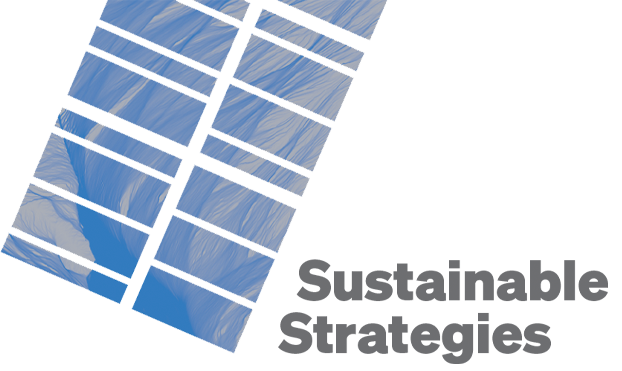And lawyers have an obligation to mitigate its disproportionate impacts.
Climate change is inherently difficult to engage with. It does not align with how our brains work; it is abstract, overwhelming in scope and scale, and difficult to visualize. Climate change plays perfectly into our short-sightedness, selfishness and survival instincts, because it is difficult, if not impossible, to see how our individual conduct could have any type of meaningful impact on such a large-scale problem — either positive or negative. To make matters worse, the framing around climate change is always rooted in sacrifice, fear, or shame.
Climate change is also continuously running in the background. If you have not yet felt the impacts of a climate change, it is because you have the resources to temporarily insulate yourself. You have climate privilege.
The Bullitt Center in Seattle, Washington
This can be a complicated conversation, but the reality is that the impacts of a changing climate hit minority and marginalized communities first and hardest.
These communities are also often un or under-insured, without the necessary resources to repair or rebuild in response to its impacts. Access to insurance should not be a privilege, but it is.
Climate change does not just put physical assets at risk, it also has severe — and disproportionate — impacts on human health and wellness.
Those in a position of privilege have an ethical obligation to work to mitigate these disproportionate impacts.
It can be difficult to regulate ethics. One exception is licensed professionals, who must abide by ethical and other governing rules as a condition of licensure or other rights.
These rules can serve as a pathway to connect the inequities of climate change to the individual practitioner’s ability — and responsibility — to make a positive impact.
The architectural community has already taken a leadership role in this space. The American Institute of Architects (AIA) creates, updates and enforces the Code of Ethics and Professional Conduct, which governs the conduct of AIA members. The 2018 updates to the Code of Ethics contains several additional Obligations to the Environment, including Rule 6.501, “Members shall consider with their clients the environmental effects of their project decisions.” Rules are mandatory, and violations are grounds for disciplinary action by the AIA. While there are questions as to what this Rule actually requires, and its impact since implementation, its inclusion sends a strong message to practitioners.
The legal community should follow suit. While not explicitly stated in the Washington Rules of Professional Conduct (RPCs), there are arguably broader themes that cut towards a similar obligation, particularly given climate change’s disproportionate impacts. These generally fall within the RPC’s broader themes of competency, advocacy, and improving the profession.
While the Preamble does not rise to the level of a Rule, it does outline several of these important themes:
“As a public citizen, a lawyer should seek improvement of the law, access to the legal system, the administration of justice and the quality of service rendered by the legal profession.” [6, emphasis added]
“A lawyer should be mindful of deficiencies in the administration of justice and of the fact that the poor, and sometimes persons who are not poor, cannot afford adequate legal assistance.” [6, emphasis added]
“A lawyer should strive to attain the highest level of skill, to improve the law and the legal profession and to exemplify the legal profession’s ideals of public service.” [7, emphasis added]
Perhaps the most relevant Rule is that of competence. Specifically, “A lawyer shall provide competent representation to a client.” RPC 1.1 — Competence.
Climate change will — and already does — impact all areas of practice, from estate planning (is this asset at climate risk), corporate law (climate disclosure requirements), intellectual property (new climate technologies) and even issues of criminal law (new types of environmental crimes).
Competence requires that lawyers understand climate impacts and advise their clients accordingly. As advisors, lawyers can also look to even broader themes:
RPC 2.1 — Advisor, “In rendering advice, a lawyer may refer not only to law but to other considerations such as moral, economic, social and political factors, that may be relevant to the client’s situation.” (emphasis added).
Given the inequities of climate change, these themes require that lawyers seek to better the profession by developing and supporting strategies that mitigate their clients’ contributions.
Lawyers have both the opportunity and obligation to use their position of privilege to mitigate the disproportionate economic and health impacts of a changing climate, through the practice of law and in their role as trusted advisors.

